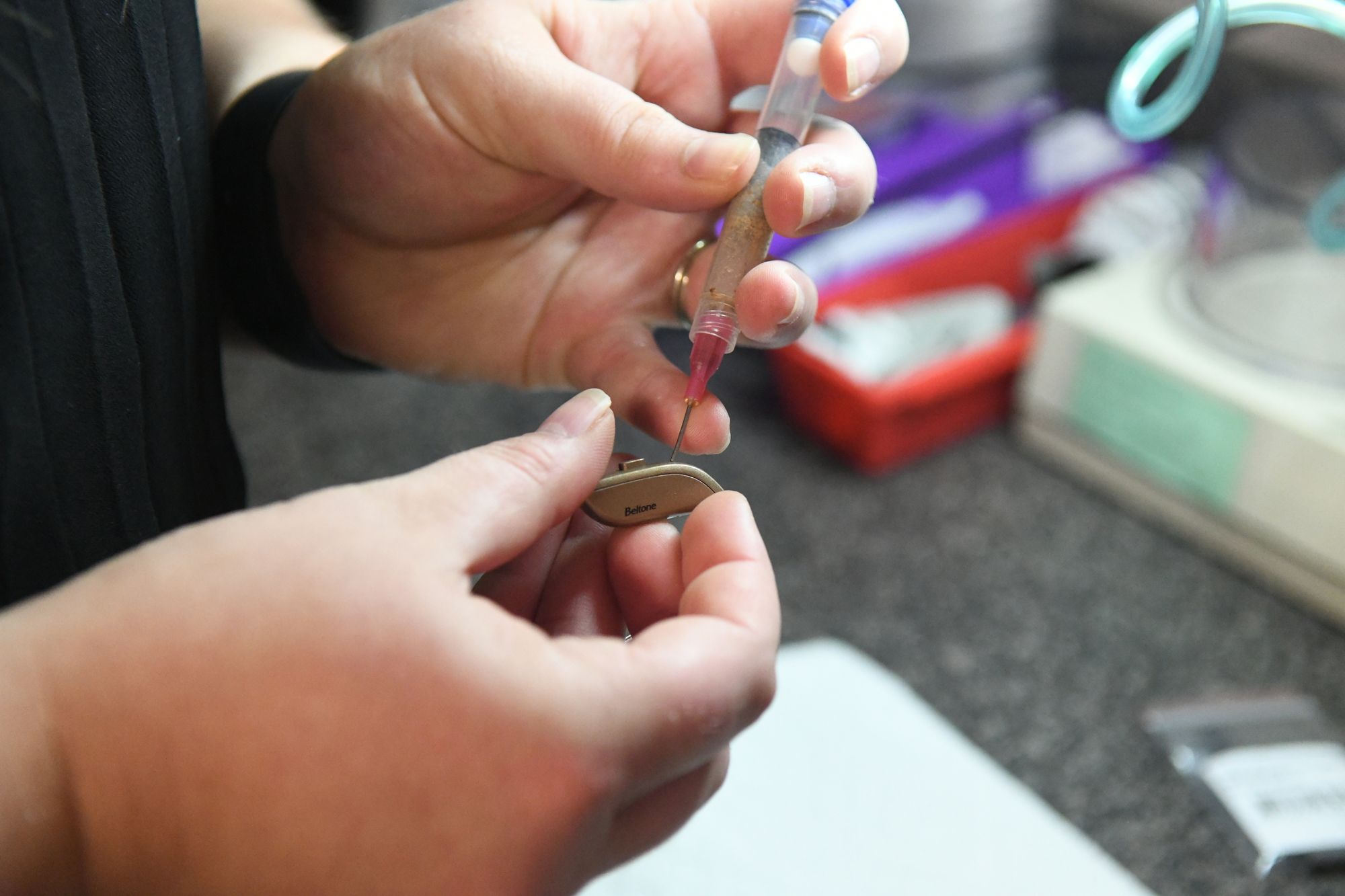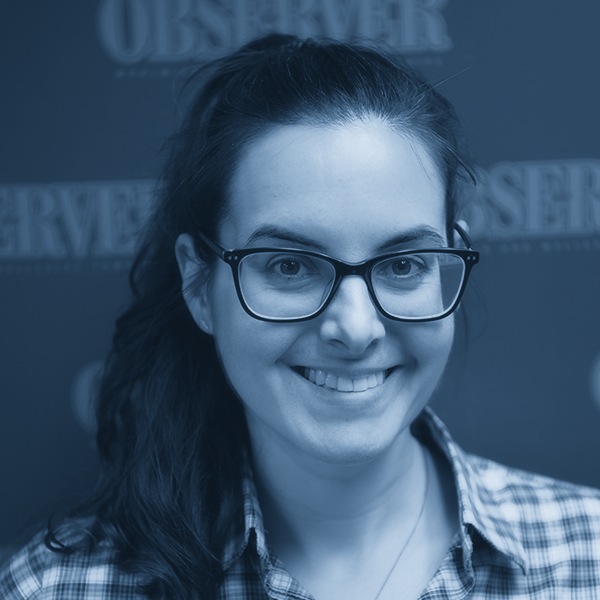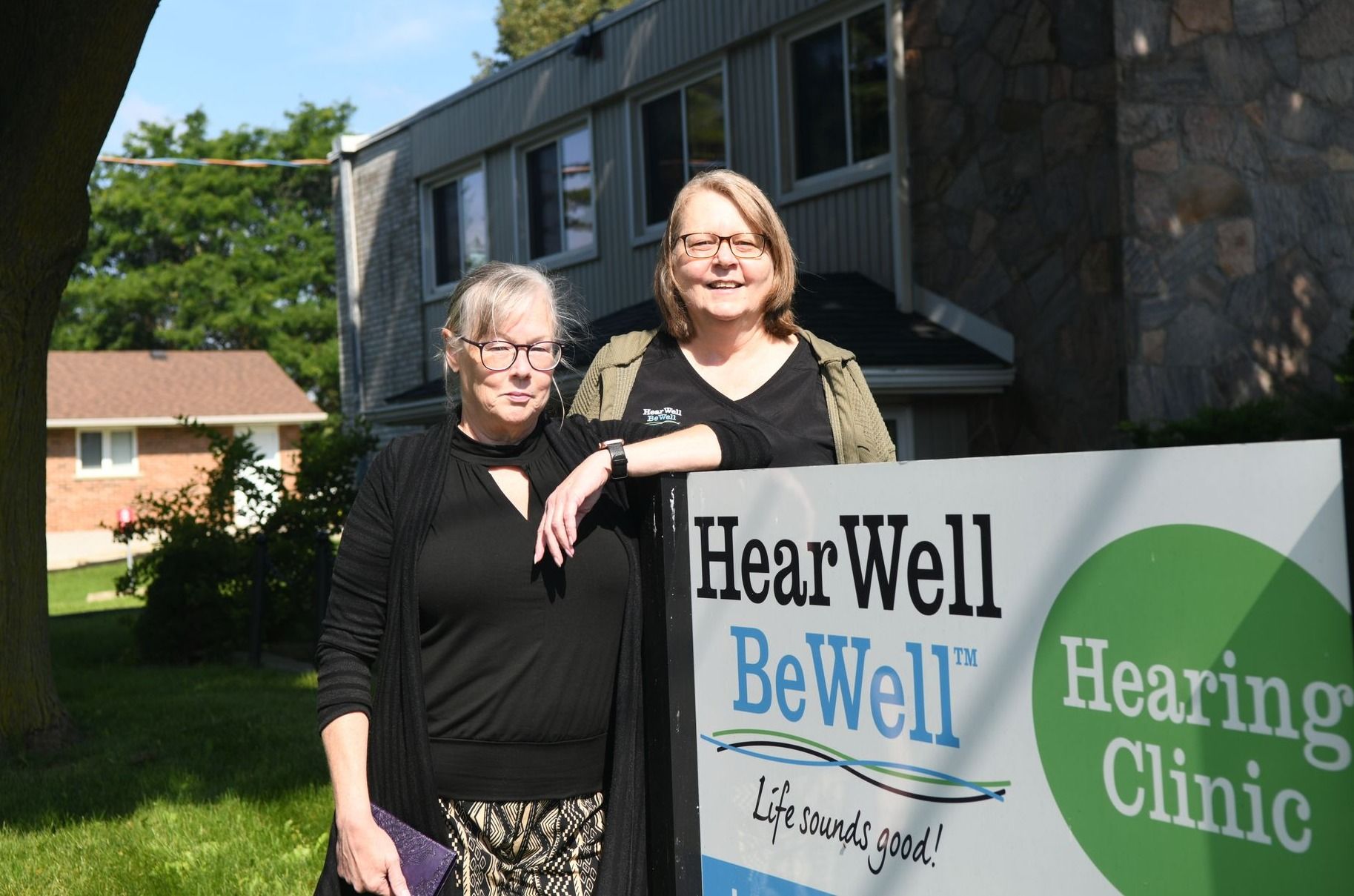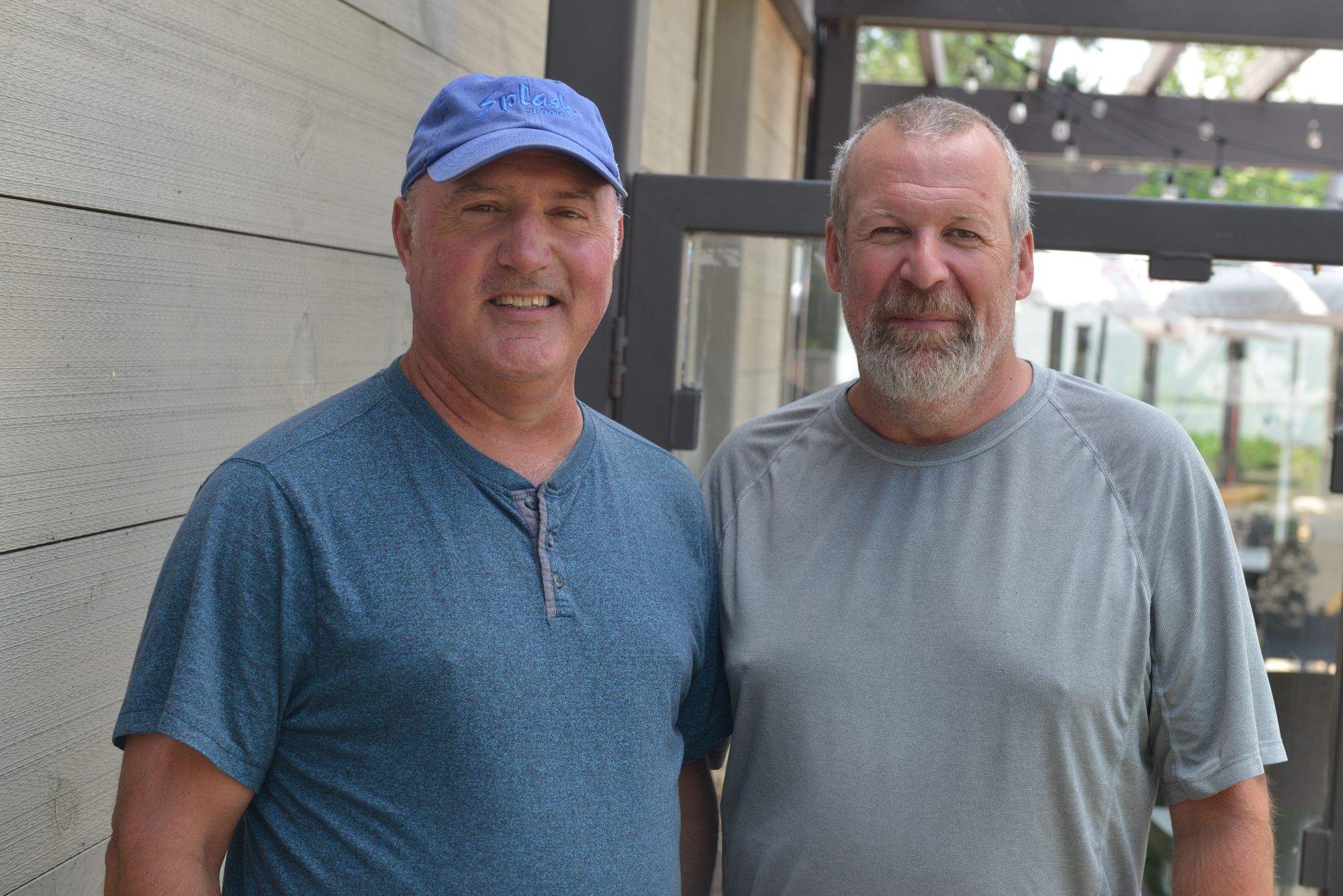The Hear Well Be Well Clinic in Wellesley is one site where people can sign a petition asking the government to increase the amount of funding given out for hearing aids.
The provincial Assistive Devices Program provides funding for people who need items such as wheelchairs or hearing aids to live independently.
Wendy Moore, the marketing manager for Hear Well Be Well clinics, says when the Assistive Devices Program originally began in 1982, the amount of funding granted was $500 per hearing aid. That’s the same amount granted today, even though hearing aids have increased dramatically in cost.
Moore said she believes the government is underestimating the impact of hearing on the overall health of the general population, particularly since hearing loss is linked to the likes of developing dementia and increased falls.
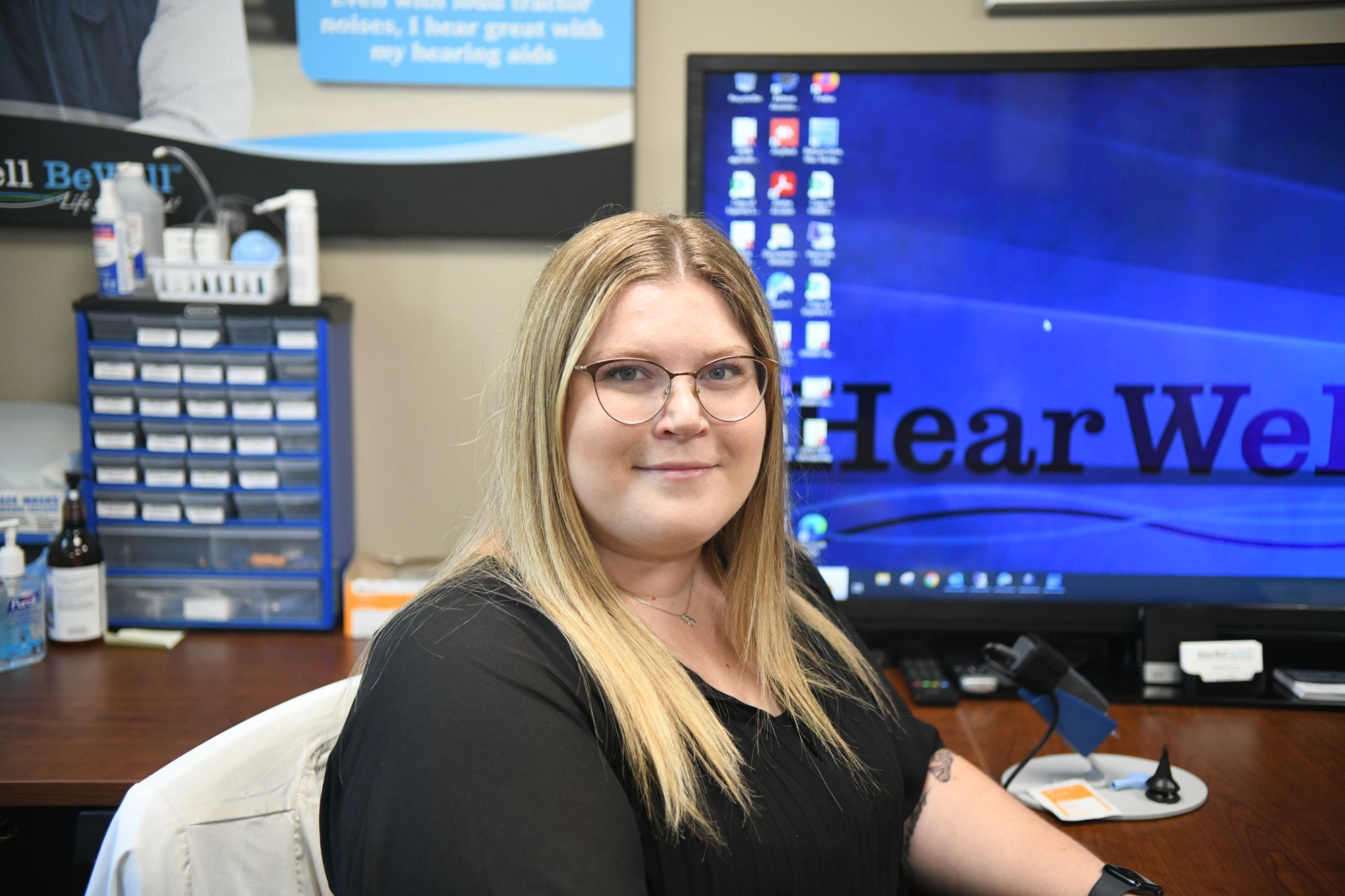
Paige Mussar is the hearing instrument specialist at the Wellesley branch of the Hear Well Be Well clinic. She says the theory behind how hearing loss is linked to dementia is that the area of the brain that processes sound and the area of the brain that handles memory are next to each other.
“There is a nerve that runs from our ear to our brain [called the fifth cranial or auditory nerve], and that nerve loves to be fed information. The more that we have a declining loss [of hearing], the less that nerve is [sending] information to our brain,” said Mussar. “That nerve provides sounds, clarity, communication, and the less that we receive of that information, the less that our brain is being, in a sense, worked out.
“Say you’re hearing a 10-word sentence nice and clear right now. But if you had a hearing loss, you may only hear five out of 10 words, so your brain isn’t actively working out. There’s just correlation studies showing that the less that we hear, the less that our brain is staying active. And if you already have a hint of dementia, then it’s following over.”
Moore said a person relies more on sound for balance and processing where he or she is in the world and how to move through it than people realize.
“Both the risk of dementia and the risk of serious falls are worthy of bringing to the attention of the government and the Ministry of Health,” said Moore. “There are just hundreds of thousands of dollars of the healthcare budget that goes to dementia care. Plus the impact on the economy of the people who stay home to care for their loved ones. We’re looking at so, so, so much money. And if we can, by treating the hearing loss, make even five people not have to have dementia care, then we’re saving thousands of dollars in the healthcare budget.”
“The money that’s spent on dementia care and serious fall care, some of that could potentially be mitigated by better support for hearing aids so that more people can afford to get that hearing support.”
Moore says that increasing the amount of funding to the 2023 equivalent of $500 in 1982 would help tremendously. The Bank of Canada inflation calculator estimates $500 in 1982 at just over $1,400 today.
Even $1,200 per hearing aid would be helpful, said Moore.
“That then opens the door to reasonably good hearing aids that everybody could get without having to take money out of their pocket.”
In 2017, an estimated 228,000 people in Ontario were living with dementia, and the province predicted this number would rise to more than 430,000 by 2038. The ministry says that dementia is a leading cause of dependency and disability among seniors and that most people with dementia also have at least two other chronic health conditions. They also visit a doctor more frequently, have more prescriptions, are two times as likely to visit an emergency department for preventable reasons and also more likely to stay in hospital longer than necessary.
Responding to the petition, Kitchener-Conestoga MPP Mike Harris said in an email to The Observer, “Through the Assisted Device Program, our government provides support to those with long-term disabilities to purchase customized equipment and medical devices. I look forward to continuing to work with the Ministry of Health and Hear Well Be Well on how our government can support connecting more Ontarians to the care and devices they need.”
Moore is asking the public to come into the Hear Well Be Well offices to sign the physical petition. Her goal is to get 10,000 signatures province-wide, as the government accepts only ink signatures as an official petition. An online petition will only be used as supporting information.
“I would like to take 10,000 signatures to the legislature,” said Moore. “Am I going to get that? We’ll see.”
